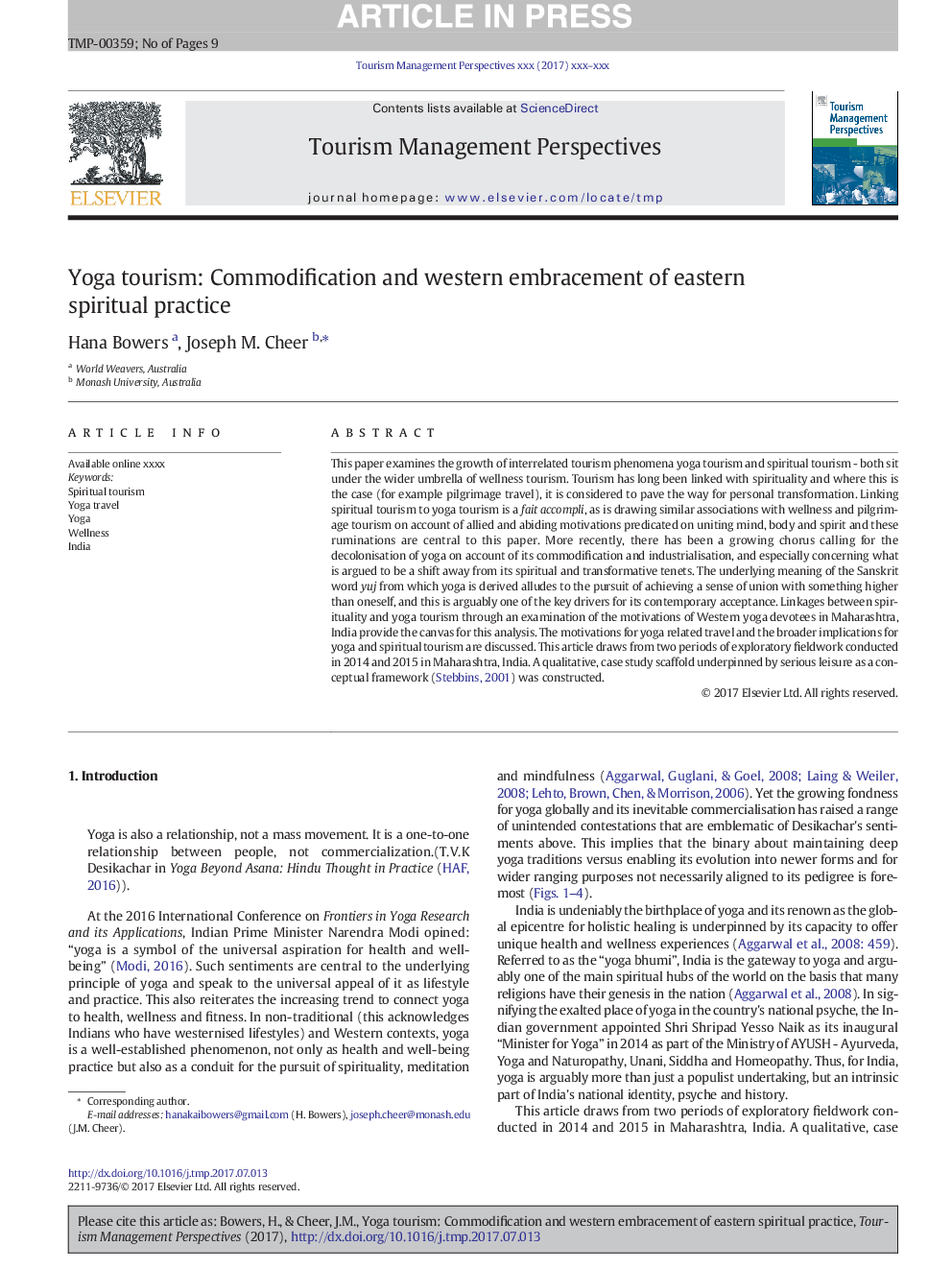ترجمه فارسی عنوان مقاله
گردشگری یوگا: آمیختن و پذیرش غرب از روحیه روحانی
عنوان انگلیسی
Yoga tourism: Commodification and western embracement of eastern spiritual practice
| کد مقاله | سال انتشار | تعداد صفحات مقاله انگلیسی |
|---|---|---|
| 150086 | 2017 | 9 صفحه PDF |
منبع

Publisher : Elsevier - Science Direct (الزویر - ساینس دایرکت)
Journal : Tourism Management Perspectives, Volume 24, October 2017, Pages 208-216
ترجمه کلمات کلیدی
گردشگری معنوی، سفر یوگا، یوگا، سلامتی، هند،
کلمات کلیدی انگلیسی
Spiritual tourism; Yoga travel; Yoga; Wellness; India;

